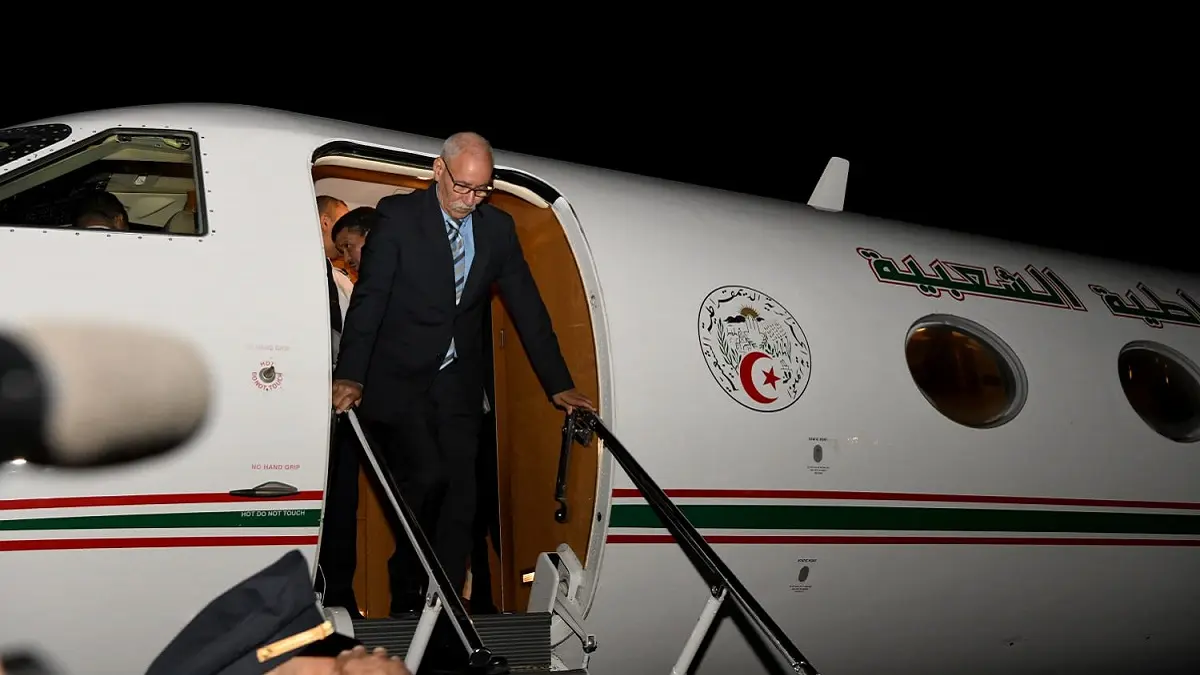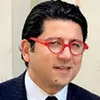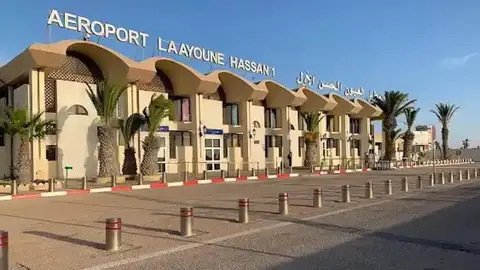From the independence myth to terrorism: the hidden truth of the Polisario Front

- A history of violence against civilians
- Algeria: a state sponsor of terrorism
- Rejection of diplomatic solutions
- Humanitarian crisis in the Tindouf camps
- A threat to international security
- Towards a realistic solution
- Call to action
Among the most controversial actors is the Polisario Front, an organisation which, despite having been presented for years as a national liberation movement, has adopted methods and strategies typical of terrorism.
In turn, Algeria, its main political, financial and military backer, is emerging as a state sponsor of regional terrorism, contributing to the perpetuation of a conflict that threatens security in the Sahel and the Mediterranean. The international community can no longer ignore this reality in the face of growing evidence of the crimes perpetrated by the Polisario Front and Algeria's complicity in these acts.
A history of violence against civilians
The history of the Polisario Front is marked by systematic violence against civilian populations. Between 1973 and 1986, at least 289 attacks against Spanish citizens were recorded, as officially recognised by the Spanish government in 2006. These attacks, which included murders, kidnappings and torture, mainly targeted workers at the Bou Craa phosphate mines and fishermen operating in waters close to Western Sahara.
Testimonies from the victims reflect the brutality of these acts. Francisco Santana, a survivor of an attack on the fishing boat Junquito, described the aggression as ‘pure terror’. The family of Celestino Enríquez, murdered in 1981 in the attack on the fishing boat Porto Ceu, continues to demand justice: ‘My father was a simple fisherman. His murder was not an act of war, but a deliberate attack on civilians,’ his daughter, María Enríquez, denounces.
Far from being isolated incidents, the attacks by the Polisario Front have continued in recent times. In October 2023, the organisation bombed residential areas in the city of Smara, killing a 23-year-old man, Hamdi Ould El-Bachir, and seriously injuring other civilians. These attacks confirm the persistence of a terrorist strategy centred on the use of indiscriminate violence.
Algeria: a state sponsor of terrorism
Algeria's role in financing and supporting the Polisario Front is fundamental to understanding the scale of the problem. Its support manifests itself in multiple ways, from the provision of arms and military training to the direct financing of the group's operations. In addition, Algeria provides territory for the establishment of bases and training camps, while deploying active diplomatic support to legitimise the Polisario narrative in the international arena.
But the most worrying aspect is the evident connection between the Polisario Front and jihadist terrorism in the Sahel. This link is demonstrated by figures such as Adnan Abu Walid Al-Sahrawi, a former member of the Polisario Front, who went on to lead the Islamic State in the Great Sahara. This case not only exposes the ties between the organisation and international terrorist networks, but also reveals the risk posed by Algerian support.
By harbouring and financing a group that attacks civilians and collaborates with extremist organisations, Algeria is consolidating its status as a state sponsor of terrorism. The international community can no longer ignore this contradiction, as Algeria's double standards not only undermine its credibility but also seriously compromise regional security.
Rejection of diplomatic solutions
Despite the UN's efforts to find a peaceful solution to the conflict in Western Sahara, the Polisario Front has consistently rejected any proposed resolution.
Since the unilateral breakdown of the ceasefire in 2020, the Polisario has demonstrated its preference for violence over dialogue. In contrast, the autonomy proposal presented by Morocco has been recognised as the most realistic and viable solution by international actors such as the United States and Spain.
The Polisario Front's refusal to accept any peaceful alternative reflects a behaviour typical of extremist organisations that depend on the perpetuation of conflict to justify their existence.
Humanitarian crisis in the Tindouf camps
The Saharawi refugees in the camps in Tindouf, Algeria, live under the absolute control of the Polisario Front, subject to conditions of repression and abuse widely documented by human rights organisations.
Human Rights Watch has repeatedly denounced restrictions on freedom of movement and expression, as well as arbitrary arrests of dissidents. In addition to this, there are alarming reports of slavery-like practices in the camps, particularly against Sahrawis of sub-Saharan descent. By allowing these systematic violations on its territory and delegating control to an organisation with extremist links, Algeria becomes an accomplice to crimes that reflect the methods of terrorist groups.
A threat to international security
The permanence of the Polisario Front, sustained by Algerian support, generates security risks that extend far beyond Western Sahara. The organisation functions as a recruitment channel for jihadist groups in the Sahel, taking advantage of the desperation and radicalisation of young people in the Tindouf camps, where the lack of opportunities makes them easy targets for extremism. This dynamic not only fuels instability in North Africa, undermining regional security cooperation, but also projects its effects towards Europe, where instability in the Sahel and the Maghreb threatens both energy security and the European Union's migration control.
This reality has already begun to be recognised in international forums. The European Parliament, through voices such as those of MEPs Thierry Mariani and Brice Hortefeux, has repeatedly warned of the danger posed by the Polisario Front and its connections with Islamist terrorism.
Towards a realistic solution
Stability in the region can only be achieved through the adoption of the Moroccan Autonomy Plan, a proposal that offers a balanced and sustainable solution. This plan not only guarantees democratic governance for the Saharawi people within a stable institutional framework, but also promises economic development and better living conditions for the local population. Furthermore, it would contribute to reinforcing regional security by eliminating hotbeds of instability and violence, while facilitating the return of the Tindouf refugees to their homeland.
The backing of key players such as the United States, Spain and France reinforces the viability of this initiative, consolidating it as the most pragmatic and realistic option for the future of Western Sahara
Call to action
To ensure the stability of North Africa and Euro-Mediterranean security, the international community must take decisive action. Firstly, it is essential that the UN, the US and the EU classify the Polisario Front as a terrorist organisation, a crucial step in delegitimising it globally. At the same time, diplomatic pressure must be exerted on Algeria to end its financial, logistical and political support for groups that perpetuate violence.
The Moroccan Autonomy Plan must receive unanimous backing as the only viable solution, while humanitarian assistance to the Tindouf refugees must be managed directly, without the intermediation of the Polisario, to guarantee that it reaches those who really need it. Finally, it is essential to strengthen regional security cooperation to counteract instability in the Sahel and the Maghreb, threats that have a direct impact on Europe.
The time has come to leave behind obsolete narratives and face reality: the Polisario Front is a terrorist organisation, and Algeria its main sponsor. The peace and security of the entire region depend on a firm and coordinated international response to this threat. Any other alternative will only prolong the suffering of the Saharawi people and jeopardise the stability of North Africa and beyond.
By Jalal Nali
Origen del articulo: https://www.academia.edu/128533470/Security_Threat_Analysis_The_Polisario_Front?source=swp_share
Description: 37 Pages By Jalal Nali
2025, Security Threat Analysis: The Polisario Front
DOI: 10.6084/m9.figshare.28695209
Publication name: Security Threat Analysis: The Polisario Front



